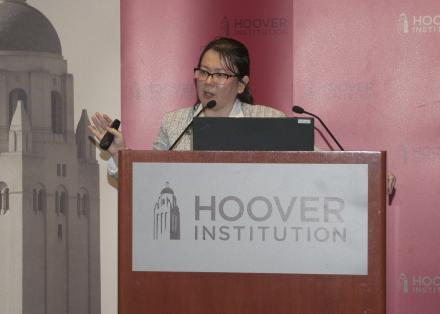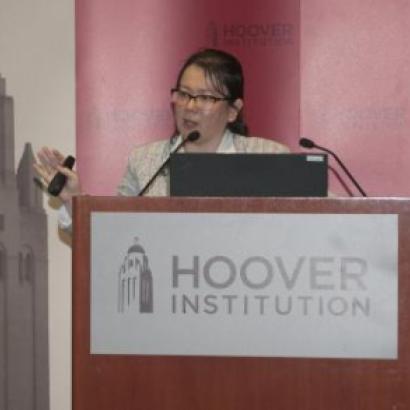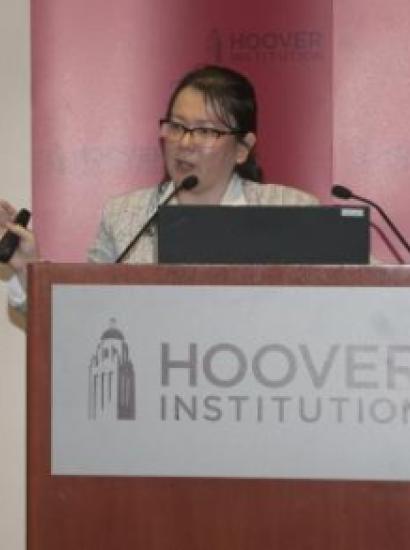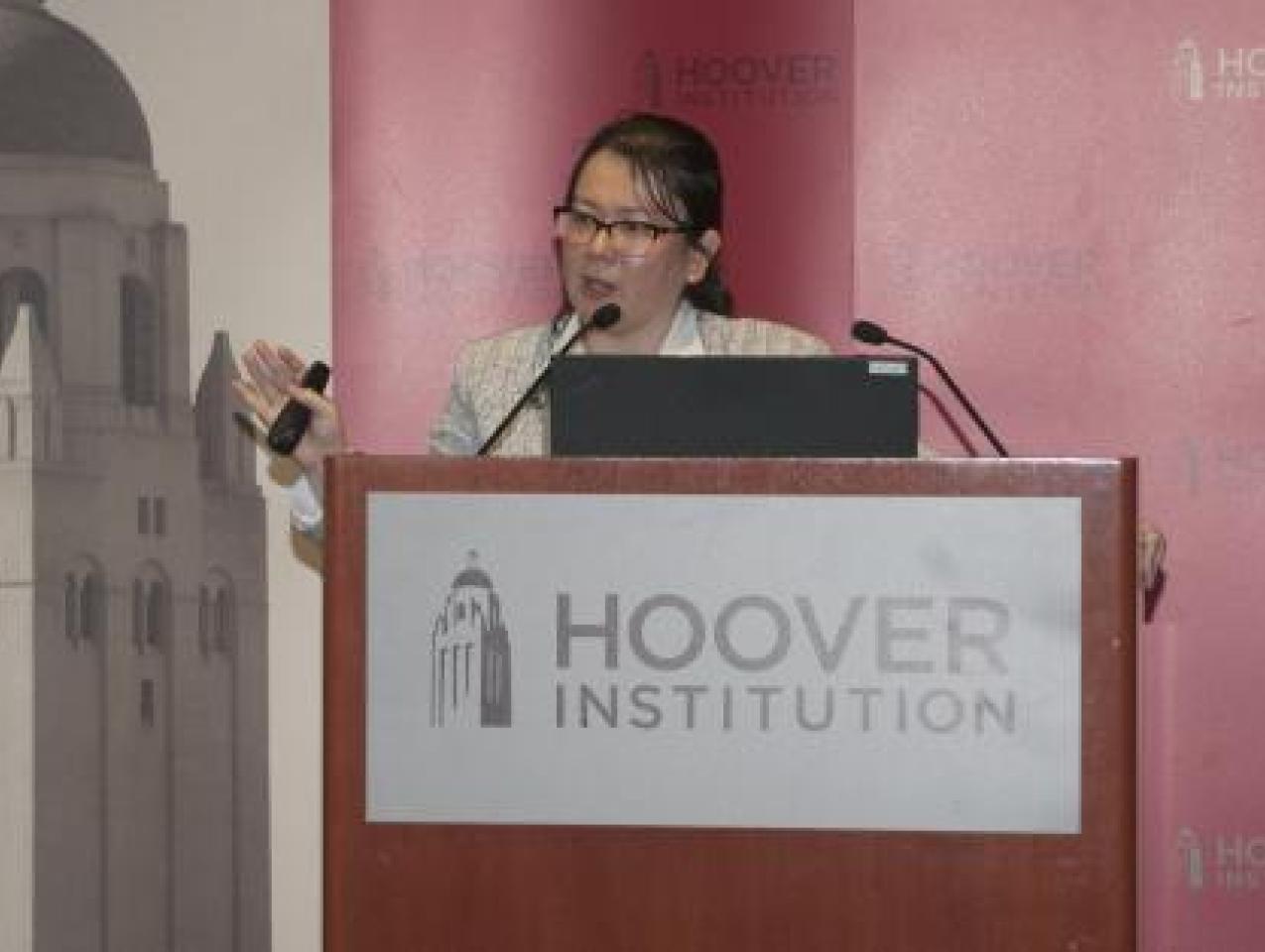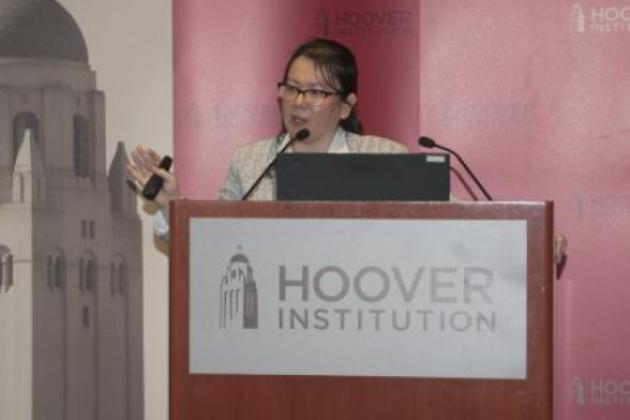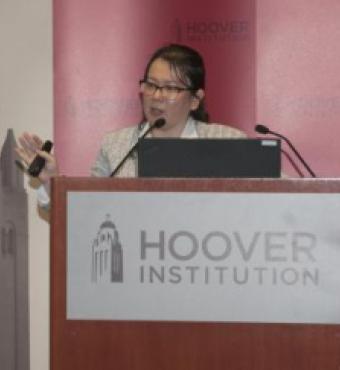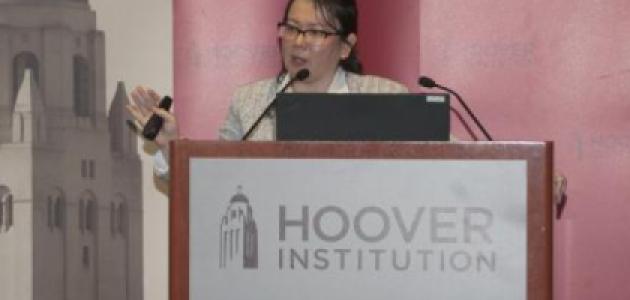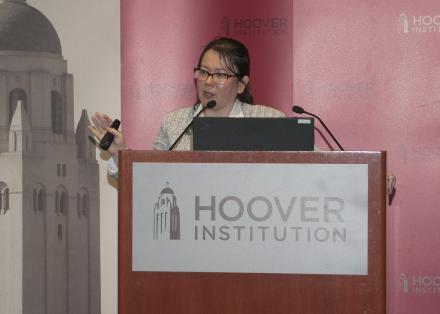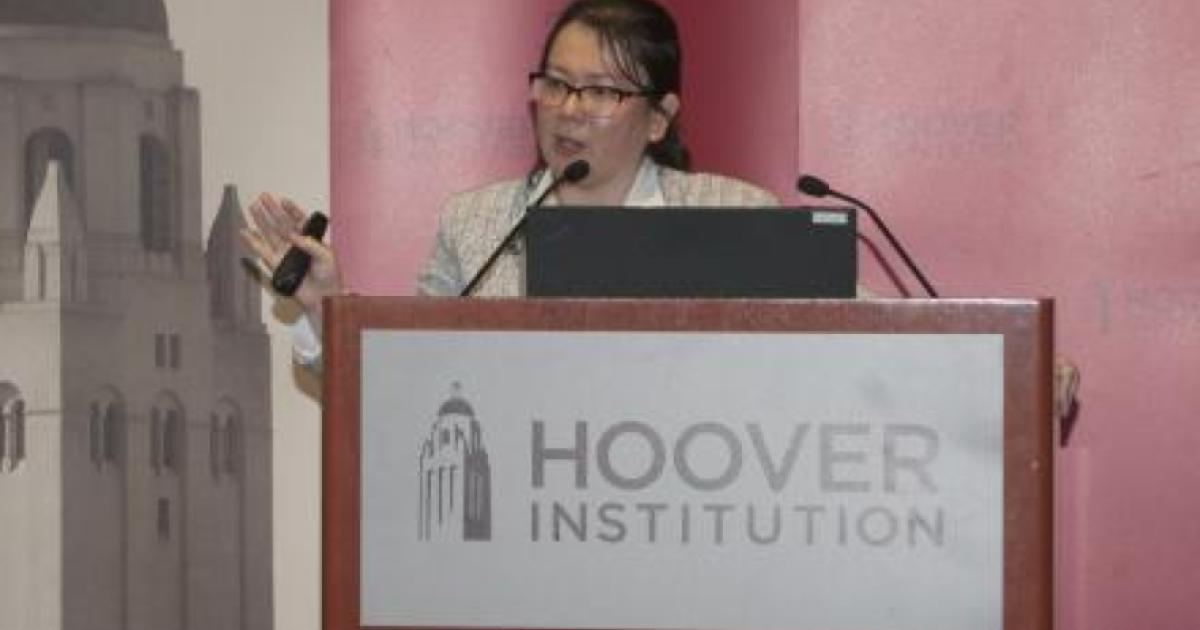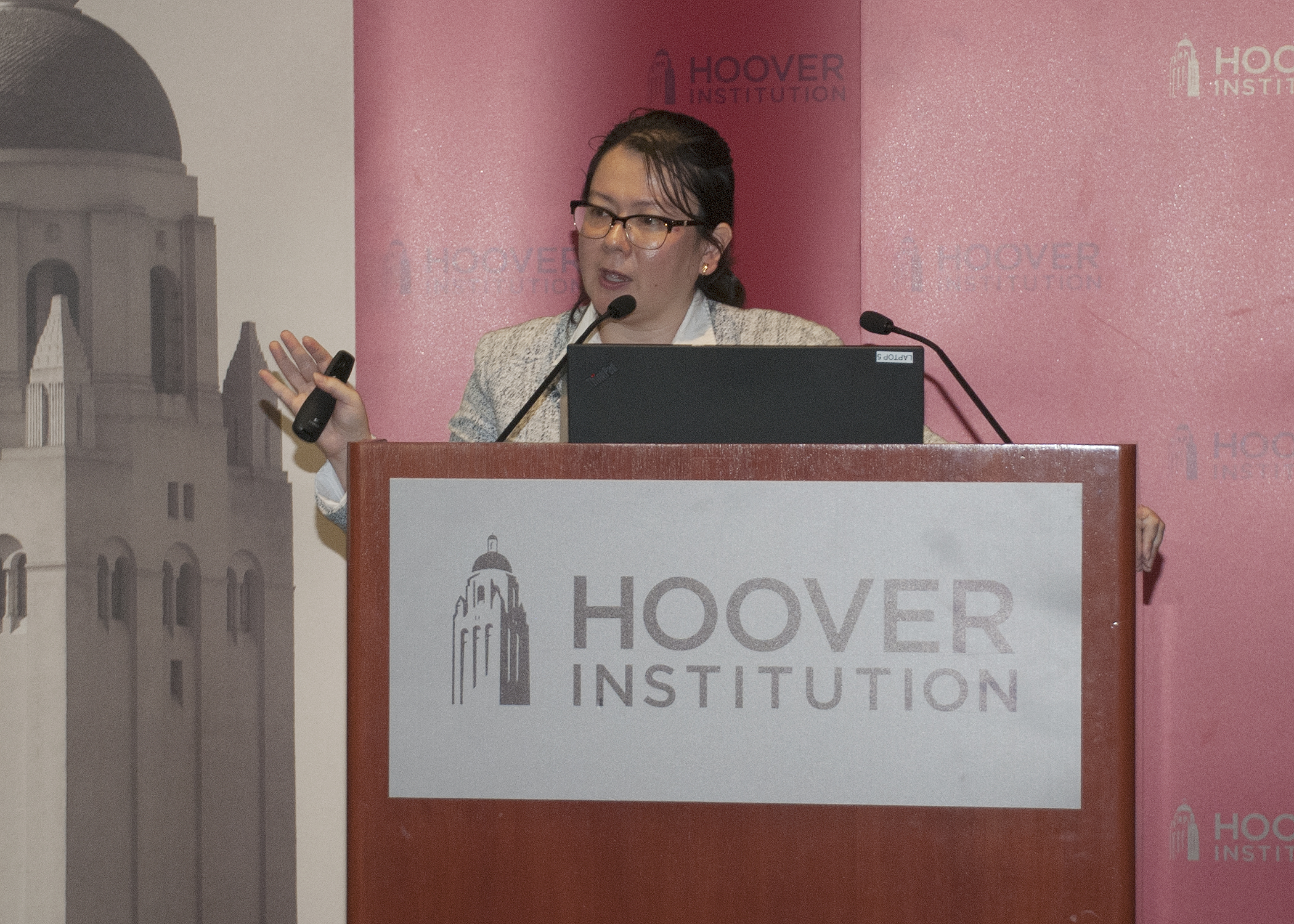
The fifth annual Hoover Institution Workshop on Modern China, entitled “Crossing the 1949 Divide: The Hoover Archives and Contemporary Chinese History,” was held during July 31 and August 4, 2017. Co-organized and cosponsored with the Seminar of East Asian Studies, Free University of Berlin, this year the workshop featured seven speakers from the United States, Germany, Austria, and Taiwan who explored Hoover’s unique modern China collections and evaluated how these historical treasures help reshape our understanding of contemporary China and post-1949 Taiwan. Workshop attendees presented their research to over three hundred audience from the Hoover/Stanford community as well as to researchers and mass media in the San Francisco Bay Area. Participants were as follows:
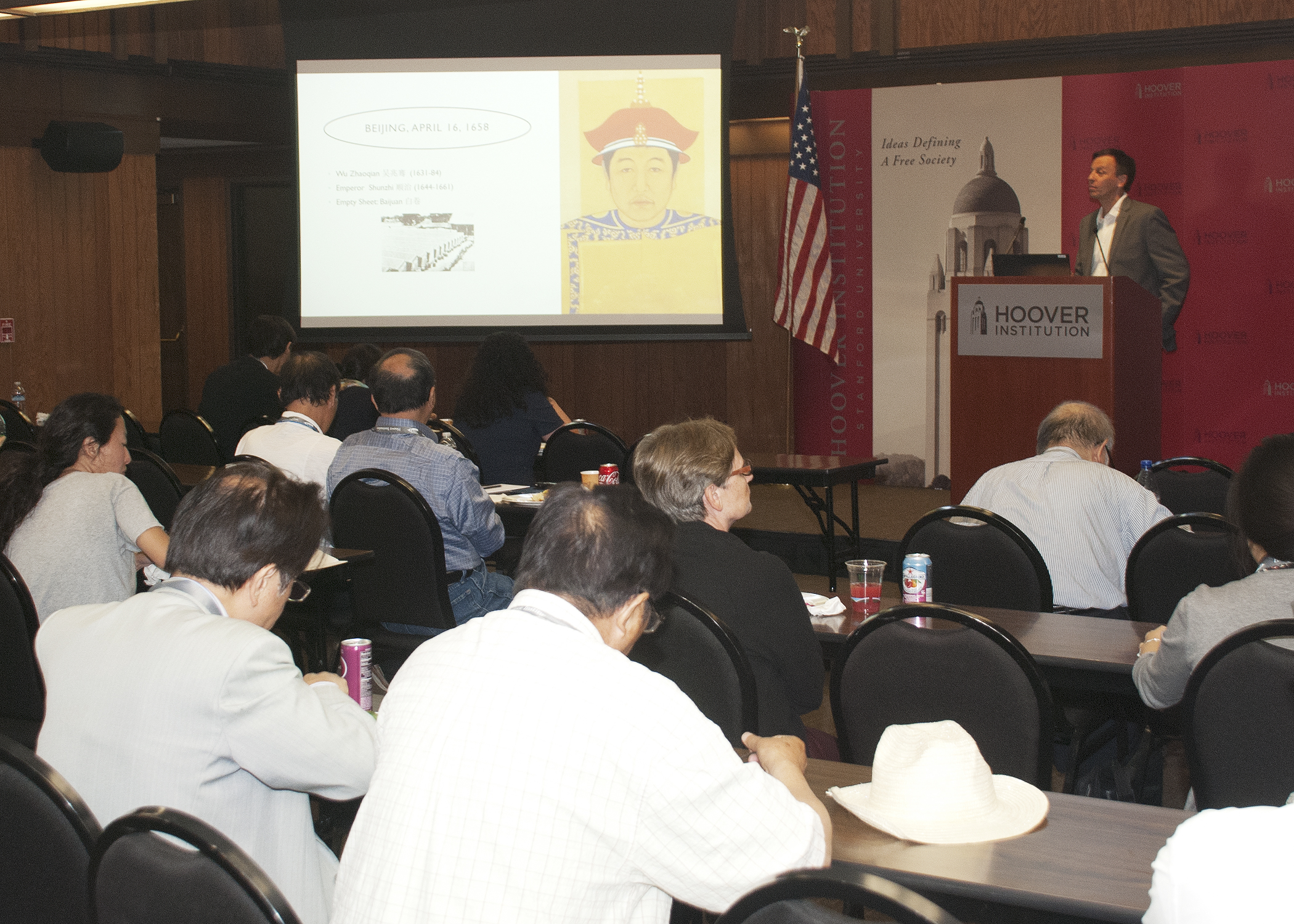
Klaus Mühlhahn (Free Berlin University) shared his findings about the issue of China’s examination systems from a historical and institutional perspective. Utilizing Hoover’s numerous Chinese archival sources, his presentation focused on the history of the examination system to recruit administrative personnel for the state from the late imperial era to present-day China. It demonstrated that the historical evolution of key institutions profoundly shaped society and politics across the political divides of 1911 and 1949.
Susanne Weigelin-Schwiedrzik (University of Vienna) raised important questions about China’s relations with Okinawa across the 1949 divide. She reevaluated whether or not the Nationalist Chinese government under Chiang Kai-shek truly played a decisive role in the status of Okinawa during World War II and reexamined whether Okinawa as part of the defunct Ryukyu Kingdom that performed a tributary role to imperial China really mattered, when the island’s fate was determined during the Cairo Conference of 1943. She also reexamined whether the current unending protests of Okinawans are related to the island’s special position as a disputed sphere of interest between China and Japan.
Yi-shen Chen (Institute of Modern History, Academia Sinica) introduced the story of Colonel Chang Hsien-yi, a CIA-nurtured spy who halted Taiwan’s secret nuclear weapon programs in early 1988. In late 1987, as Taiwan’s underground nuclear program was gaining steam, Colonel Chang defected to the United States with the help of the CIA. In Washington D.C., he revealed damning evidence of the progress Taiwan had made toward building an atomic bomb. Using this episode as a case study, Chen examined the nature of US-Taiwan relationship after Taipei and Washington severed diplomatic ties in early 1979.
Tsui-lien Chen (National Taiwan University) explained the practice of transitional justice in Taiwan and how the current ruling Democratic Progressive Party (DPP) facilitated Taiwan’s becoming a “normal country” where democracy can be consolidated. Consulting Hoover’s rich historical holdings and tracing Taiwan’s party-state system since the end of World War II, Chen argued that the Chinese Nationalist Party (KMT) not only controlled the government, penetrated society, and extracted resources but also shaped ideology, dictated adoration, and persecuted political dissidents. As the DPP returned to power in 2016, it began liquidating KMT party assets, removing Chiang Kai-shek’s statue, and passing new regulations to facilitate the transformation of justice.
James Z. Gao (University of Maryland) drew attention to the common betrayals phenomena in post-1949 China’s political campaigns. His talk illustrated how the People’s Republic of China (PRC) used political and economic means to gradually prevail over consumer power in Shanghai and how institutional coercion and material temptation defined a new norm of shopping behaviors. Based on Hoover’s archival collections on post-1949 PRC, Gao discovered that the consumers betrayed their alliance with merchants, a small group of women betrayed interests of most women, and the Shanghai workers were persuaded or forced to stop helping hungry peasants and thus betrayed their families in their home villages. Finally, the privileged food rationing program was introduced to entertain the urban consumers, making the policy implementation possible in Shanghai and other Chinese cities.
Margaret Mih Tillman (Purdue University) focused on several social problems plaguing contemporary China through the 1950s, especially child care and the mobilization of women in the labor force. She demonstrated that after the establishment of the PRC, members of the Women’s Federation also established and managed preschools and kindergartens to mobilize the female workforce. This rhetoric intensified through the Great Leap Forward, when the state attempted to assume responsibility for female duties, such as cooking, child care, and elder care. She also argued that early childhood education remained private and diverse and relied extensively on the Chinese Communists’ KMT precedents.
Glenn Tiffert (University of Michigan) closed this year’s workshop with a presentation on the history of the Anti-Rightist Campaign of 1957-59. Focusing on dozens of articles originally published around this period and utilizing a combination of close reading and computational techniques, Tiffert demonstrated how the source base from the early PRC has been silently reconstructed, which ideas and voices have been filtered from it, and what the historiographical significance of that censorship amounted to. His talk demonstrated empirically how the increasing reliance by scholars outside of China on such digital databases inadvertently empowers the PRC government to export its domestic censorship regime abroad and to reshape the on-the-fly record from which tomorrow’s histories will be written to favor its chosen narratives of the moment.




